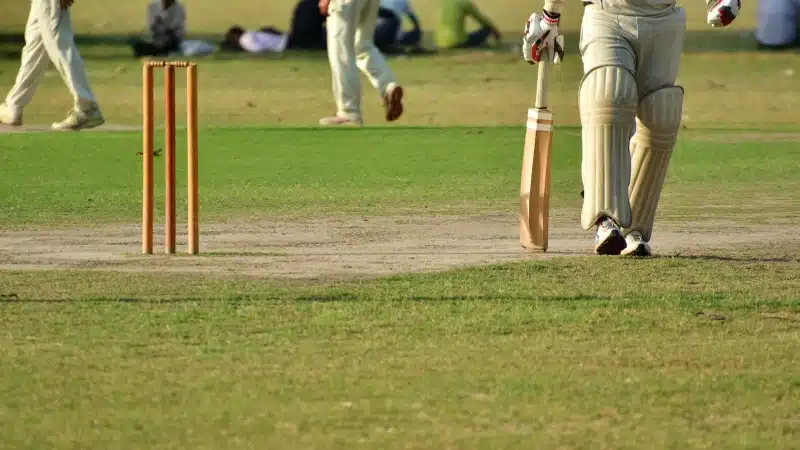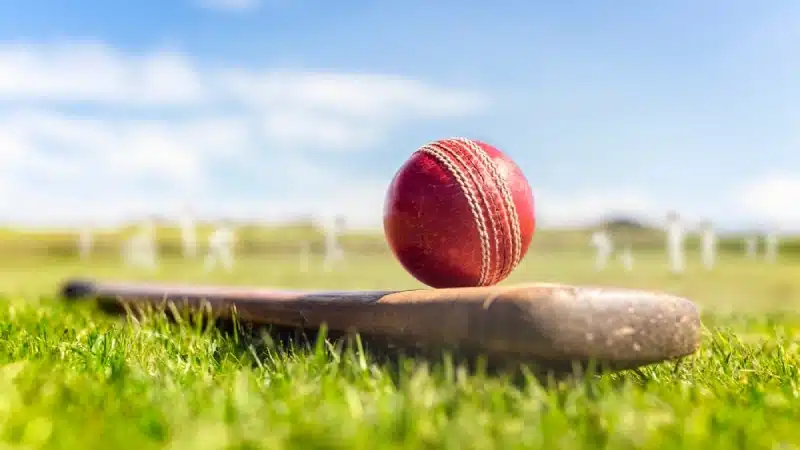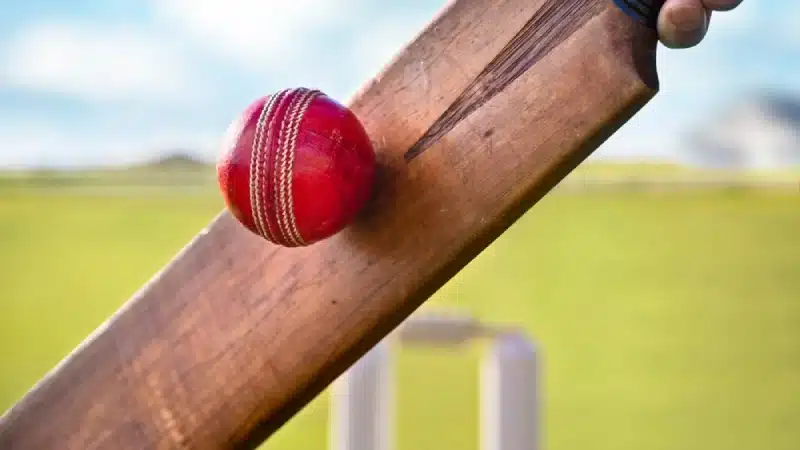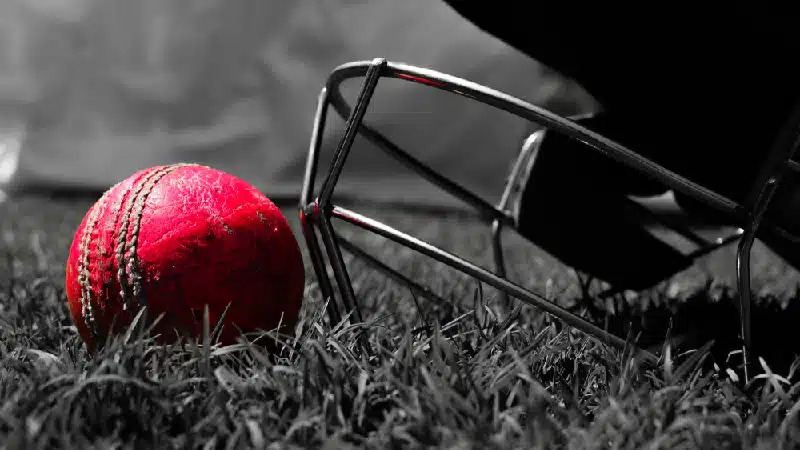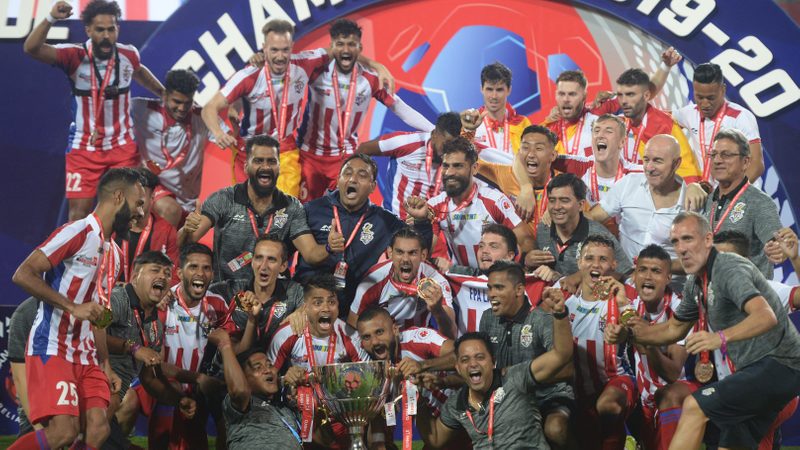
India was once considered as a ‘sleeping giant’ in the world of football, but the Indian Super League (ISL) is slowly changing that.
While teams clashed in the league stages, only a select few clubs made it to the end of each season and fought for glory in the ISL final. The summit clashes often bring out the best in what are perhaps the two best clubs of the season.
Only three ISL champions emerged in the first six seasons of the league. Here’s how they clinched the trophy.
2019-20 ISL final: Chennaiyin FC vs ATK
The season 6 ISL final saw ATK and Chennaiyin FC lock horns for a shot at an unprecedented third title, as both teams had won the competition twice before.
ATK, who re-appointed Spaniard Antonio López Habas as their head coach ahead of the ISL 2019-20 season, conceded a mere 16 goals in 18 league games (second-lowest in the league), while the forward pairing of Fiji’s Roy Krishna and Australia’s David Williams scored 22 of the team’s 36 goals en route to the ISL final.
Chennaiyin FC, on the other hand, made their way into the ISL final on the back of a miraculous turnaround by Scottish manager Owen Coyle. The new-found rhythm that was cultivated by Coyle’s philosophy saw the Marina Machans register a nine-game unbeaten streak - the best run by a team in the campaign.
The 2019-20 ISL final began with ATK withstanding the early pressure from Chennaiyin FC to take a lead in the 10th minute. Spanish attacking midfielder Javi Hernandez found himself at the receiving end of a Roy Krishna cross from out wide off the left-wing.

ATK kicked off the second half with a counter-attacking approach, and that allowed David Williams to assist Spain’s Edu Garcia’s 48th-minute strike and take the score to 2-0. With pressure rising, Chennaiyin FC flooded the ATK box and finally made a breakthrough through Nerijus Valskis to make the scoreline 2-1.
ATK’s patience with Chennaiyin’s ‘Park the Bus’ approach in the last 10 minutes bore fruit as Pronay Halder set up Javi Hernandez to net ATK’s third goal, in the fourth minute of stoppage time, to seal the game 3-1.
2018-19 ISL final: Bengaluru FC vs FC Goa
The 2018-19 ISL final was something to look forward to, as both Bengaluru FC and FC Goa, who lost on their prior final appearances, were chasing their maiden title.
Bengaluru FC established a record six-game unbeaten streak that ran from October 22 to December 5. By the end of the group stages, the Blues finished on equal footing with FC Goa, but their head-to-head record placed Bengaluru FC ahead.
FC Goa were the top-scoring team in 2018-19 ISL, netting 36 times, of which Spanish striker Ferran Corominas scored 16 goals. The Gaurs were more dominant at home, as they won three of their four ties and scored 13 goals in the process.
The teams, meeting in their first-ever ISL final, saw the game move into additional extra time after the scores were 0-0 at 90 minutes. But, just as it seemed the tie was headed for a penalty shootout, Rahul Bheke headed in the winner in the 117th minute to guide his team to their first ISL title.
2017-18 ISL final: Bengaluru FC vs Chennaiyin FC
The 2017-18 Indian Super League was a landmark edition, with the eight-team competition now expanded to 10 teams upon recognition by the Asian Football Confederation (AFC).
Bengaluru FC was nothing short of a free-scoring unit, as they scored 38 goals and conceded just 16. Considering this, Sunil Chhetri’s men were the overwhelming favourites ahead of the final at home. Chennaiyin FC, on their part, entered their second ISL final on the back of a topsy-turvy campaign in the group stages.

The championship match began with Indian football team captain Sunil Chhetri netting in the ninth minute -- the fastest goal in an ISL final.
Chennaiyin fought back with Brazilian defender Mailson Alves heading in two set-pieces to take the score to 2-1 before half-time. Seven minutes past the hour mark, Brazil’s Raphael Augusto made it 3-1 with some individual brilliance in the Bengaluru FC box.
Miku’s late strike in the second minute of stoppage time proved detrimental to the cause as Chennaiyin FC claimed their second crown, and joined ATK as the most successful club in the competition’s history.
2016 ISL final: Atletico de Kolkata vs Kerala Blasters
Jose Molina, who took over the managerial reigns of Kolkata after Antonio Lopez Habas left post his two-season stint, orchestrated his team’s consistent run in the competition. He turned a side that lost five of their 14 group stage games in the 2015 edition into an ISL team that lost only two games in the 2016 campaign.
Kerala Blasters’ season, meanwhile, got off on the wrong foot with back-to-back defeats. Steve Coppell’s men netted just 12 goals, averaging a goal per game, but their home record at the Jawaharlal Nehru Stadium (six wins in a row) gave them a psychological edge against Atletico de Kolkata ahead of their meeting in the ISL final.
More than 54,000 fans at Kochi had to wait for a breakthrough until the 37th minute when Mohammed Rafi’s header off a Mehtab Hussain corner gave Kerala a 1-0 lead. Portugal defender Henrique Soreno outmuscled Sandesh Jhingan to head in a 44th-minute corner kick and draw the scores level at 1-1.

ATK and Kerala Blasters, at 1-1 post additional extra time, went into penalties with Kerala taking a 2-1 lead. However, Elhadji Ndoye‘s horror penalty opened the door for Kolkata to strike back and Jewel Raja hit the winning penalty to see ATK win by a 4-3 margin.
2015 ISL final: FC Goa vs Chennaiyin FC
The FC Goa vs Chennaiyin FC showdown in the 2015 ISL final lived up to be a cracker of a contest, as Zico’s free-scoring Gaurs entered as favourites to win against Marco Materazzi’s team that leaked just 17 goals in 16 matches.
FC Goa’s scoring output (32 goals) was the best in the league. Their thumping 7-0 victory over Mumbai City FC remains the biggest win in the competition’s history and the result escalated the hopes of FC Goa fans, who were waiting to see the club in the ISL final.
Chennaiyin FC’s run to the final was a mixed success, from three wins in their first six matches to winning their last four group stage games. The Marina Machans kept six clean sheets in the entire campaign and were keen to play the dark horses against Atletico de Kolkata in the 2015 ISL final.
The first goal of the game, in the 54th minute, was scored by Chennaiyin’s Bruno Pelissari who netted from a ricochet off Laxmikant Kattimani when he made the initial penalty save. Four minutes later, FC Goa drew level thanks to the build-up play by Romeo Fernandes and Thongkhosiem Haokip tapping into an empty net.
The final minutes of the feisty final saw FC Goa go up 2-1 through Jofre’s spectacular freekick but the Gaurs had their hearts broken by Kattimani’s own goal and Steven Mendoza’s stoppage-time winner, as Chennaiyin FC won the contest 3-2.
2014 ISL final: Atletico de Kolkata vs Kerala Blasters
The inaugural season of the Indian Super League was graced with legendary figures like Luis García, Alessandro Del Piero, Robert Pires and Freddie Ljungberg. However, it was Garcia’s Atletico de Kolkata and David James’ Kerala Blasters who stood out as the first-ever finalists of the Indian football extravaganza.
Kolkata’s attacking returns were fairly decent, 16 goals in 14 league games. Riding on the efforts of the Spanish quartet - Luis Garcia, Borja Fernandez, Josemi, and Jofre - Kolkata held their nerves to play out successive stalemates against Zico’s FC Goa in the semi-finals and then booked their date with Kerala Blasters after winning the penalty shootout by a 4-2 margin.
Kerala Blasters conceded the least goals in the round-robin stage (11) and thus, they were given the tag of slight favourites in the first-ever ISL final.

Atletico de Kolkata and Kerala Blasters enjoyed a tug of war of possession and goalscoring opportunities but it was not until the 94th-minute winner from substitute Mohammed Rafique that the 55,000 fans at the stadium and entire city of Kolkata went into a frenzy.













